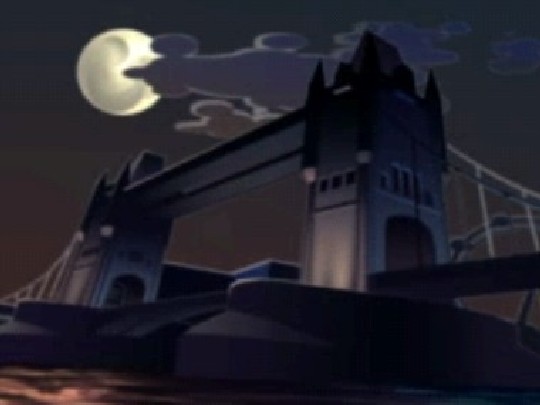|
POLICE AND THIEVES
Location: the street
With new DS releases
drying up to a mere 40 or 50 a week, this year Iíve mostly been
playing Scotland Yard, because I'm the classic example of an only
child.

Mr. X is going to have a job stealing this.
Boardgames are brilliant fun, offering
gameplay thatís been tried and tested over years or often decades,
but are usually handled terribly on consoles. Seeking some
justification for running on powerful electric machinery and costing
twice as much as buying the physical version from a toyshop, they
frequently swamp the gameplay in pointless bells, whistles and
cutscenes (which the player is forced to instantly turn off in the
options so that a single game of Monopoly doesnít last for 14
hours), as well as imposing an unwavering
rigidity of rules.
Worse still, some are
so mean-minded and grasping that they make the economics of
using the console to play them simply too farcical to bear Ė hello
DS Scrabble, which eschews the eminently sensible and obvious
possibility of multiple players passing round a single machine in
favour of insisting that all players have their own individual DSes
and copies of the game, raising the price of a four-player game of
Scrabble from about a tenner for a real-life set to somewhere more
in the region of £500. As a result of all the above, boardgame
conversions rarely get reviewed anywhere, which is a bit of a shame
as sometimes it means you might easily miss out on an absolute gem,
and such is the case with Scotland Yard on the DS.
(Missing this
particular gem is even more likely than usual, because at the time of writing
it
seems, rather oddly, to have had a European release but not a UK or US
one.)

This is an original London boardgame board.
Click the image for a full-size version.
The original board
version is around 25 years old and has sold over 4 million copies
worldwide yet
isnít terribly well-known outside of serious boardgaming circles.
Itís a game of asymmetric warfare, in which one player (a Pink
Panther-style thief called Mr X) has to move around a real-life city
evading a team of detectives (numbering anywhere between two and
five), while the detectives attempt to track his movements using
only details of what forms of transport heís using and occasional
scheduled sightings. (Mr X is a very sporting crook, and rather
kindly agrees to have his last location revealed to his pursuers every five turns or
so.)
WoS isn't about to read the entire
instruction manual to you Ė go and look on the
internet for more info
on Scotland Yard itself if you need it Ė but itís a cleverly-designed, highly entertaining
game (which explains the
quarter-century lifespan and counting) with lots of balance and
flexibility and no reliance on dice or chance except the random
positioning of the characters at the start. It is, however, a bit of
a pain to play in real life due to the preponderance of fiddly
tickets and the difficulty of Mr Xís location having to be
physically concealed. Itís exactly the sort of game, in other words,
that someone ought to port to a console.
|
TO READ THE REST OF THIS FEATURE
(3,213 words), BECOME A
WoS SUBSCRIBER |
|

